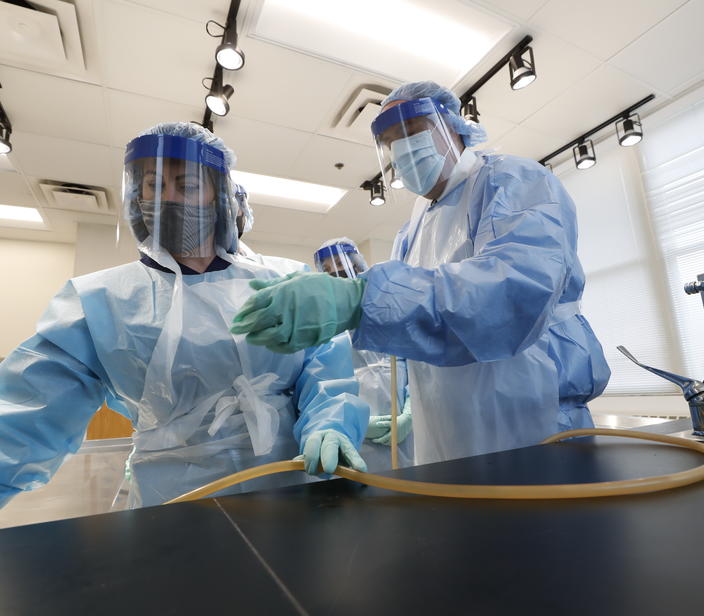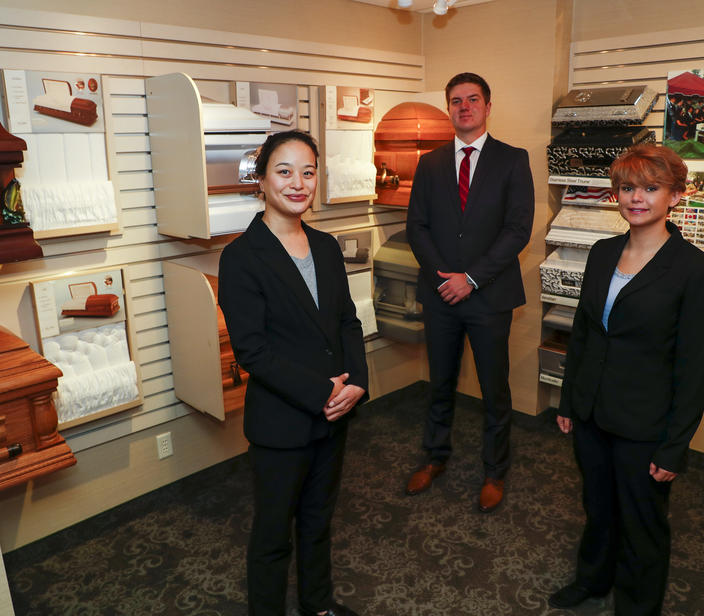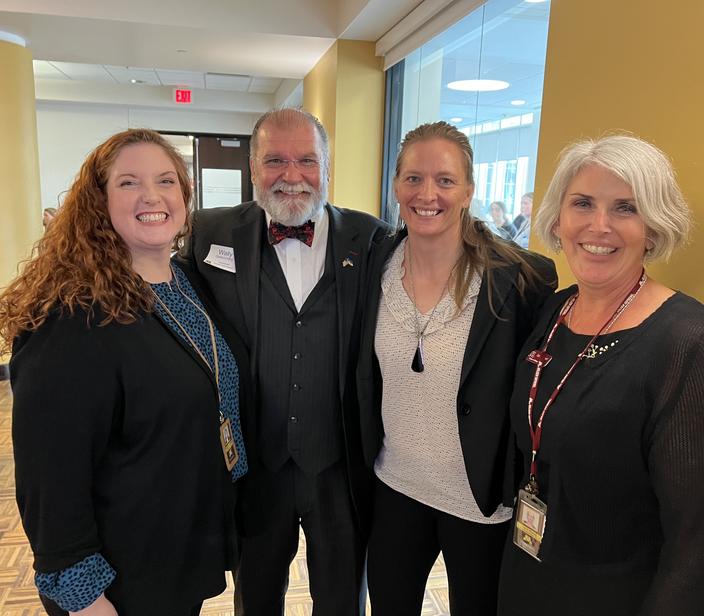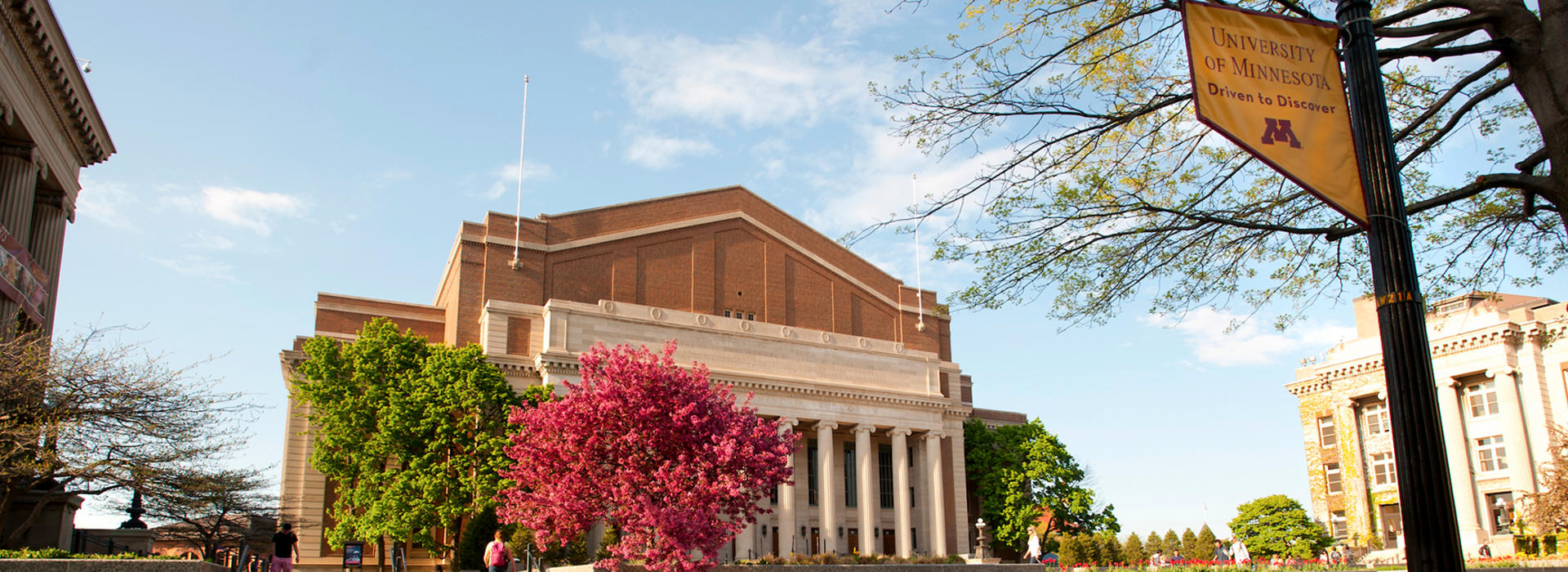
Prepare Skilled Professionals | Serve Communities
Our mission is to skillfully combine the study of behavioral, physical and applied sciences for the goal of preparing graduates for careers as knowledgeable, skilled and innovative funeral service professionals.

Program Director, Michael LuBrant
Funeral directors are health care professionals who serve others during a time of loss, pain and grief. The Program of Mortuary Science's mission is to skillfully combine the study of behavioral, physical and applied sciences for the goal of preparing graduates for careers as knowledgeable, skilled and innovative funeral service professionals. Program graduates will be prepared to serve bereaved members of their communities in a manner that is proficient, dignified and caring.
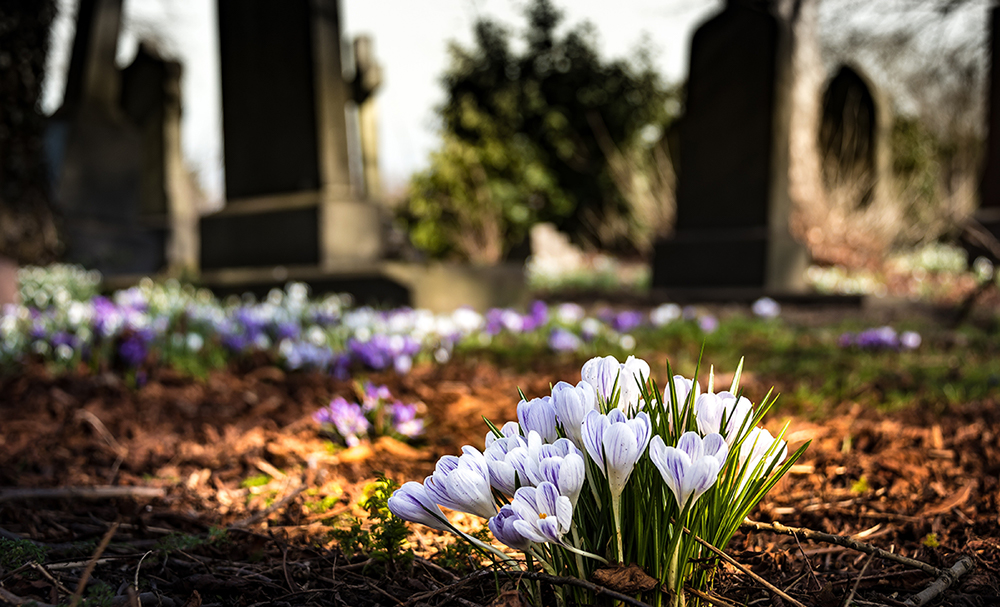
The Program of Mortuary Science Hosts Virtual Seminars to Improve Funeral Care During COVID-19
With in-person funerals on a hold because of COVID-19, the Program of Mortuary Science at the University of Minnesota Medical School is committed to helping families and funeral service practitioners come up with meaningful ways to commemorate loved ones.
Frequently Asked Questions
I believe funeral service is the professional career I wish to pursue. How can I be sure?
We strongly urge prospective students to meet with a funeral director in their community to discuss their interests and career goals. The Admissions Committee looks favorably towards applicants who have previous work experience in funeral service, and who can provide references from persons working in the field.
Funeral service is an incredibly rewarding career, but is also very demanding in terms of time commitments and work responsibilities. We believe – and experience has shown – that anyone considering entering this profession would be well served by working in the field for several months before applying for admission.
Helpful information can be found of the websites of both the National Funeral Directors Association and the American Board of Funeral Service Education:
What are the job opportunities for program graduates?
The market for funeral directors at the present time is good; see US Bureau of Labor - Funeral Service Workers. Due to anticipated retirements over the next decade, the outlook appears positive for employment in funeral service.
People considering this career should remember, however, that with the exception of larger towns and metropolitan areas, most communities have only a small number of funeral establishments where employment opportunities might; It is not uncommon for people to relocate – sometimes at considerable distance in order to find a job in funeral service that meets their professional career goals and lifestyle needs.
How much money do funeral directors make?
According to the U.S. Bureau of Labor Statistics, in 2023 the median pay for funeral service workers was $60,580 per year / $29.13 per hour.
For national salary information, please see: https://www.bls.gov/ooh/personal-care-and-service/funeral-service-occupations.htm
Once I graduate, how long does it take to complete licensing requirements?
This depends on where you wish to live and practice as a funeral director. In Minnesota, prospective licensees must complete a one-year internship after school, prior to licensure.
Graduates of our program earn two months of internship credit towards Minnesota licensure, as the Board of Health recognizes the Clinical Rotation course to have the equivalent time value of two months. Other states require periods of internship of up to two years.
Do all states have the same licensing requirements?
No. Please refer to https://nfda.org/careers/licensing-requirements to determine the regulatory board in the state where you wish to earn licensure.
Additional information for Minnesota can be found here https://www.mnfuneral.org/page/educationrequirement
If I have already completed a bachelor’s degree from another college or university, how long would it take me to complete a B.S. degree in your mortuary science program?
Provided you have already completed the required prerequisite coursework, it is possible to complete our program in just over three semesters, or approximately 18 months. At the completion of your studies, you will earn a Bachelor of Science degree with a major in Mortuary Science from the University of Minnesota.
If I have already earned an associate’s degree in mortuary science, can I apply to your program with the goal of completing a bachelor’s degree in mortuary science?
No. Of the 120 semester credits that are needed to complete the typical baccalaureate degree, we require approximately 60 credits within major-theme coursework at the 3000 level. The remaining 60 credits are typically distributed over a variety of liberal arts theme areas, such as social sciences, humanities, cultural diversity, etc. Because the university does not accept credits from trade or technical schools, coursework earned from these institutions cannot be used to fulfill requirements of the major.
People who have earned an associate’s degree in mortuary science, and wish to continue their education at a higher level are advised to pursue a baccalaureate degree in an area of relevant interest, such as psychology, sociology, biology, theology, business administration.
If carefully planned, one can usually transfer from an associate degree program to a baccalaureate degree program, and finish the latter degree in two years. When considering a program of mortuary science with the goal of continued academic study at the baccalaureate level or higher, prospective students are strongly advised to make sure the institution they choose to attend maintains regional accreditation from the appropriate accrediting agency.
For example, some colleges and universities will not offer transfer credit(s) for coursework taken at certain technical, vocation, or community colleges. Always make sure the courses you take will be accepted for credit at the institution of intended transfer before registering for any class. Always be sure to get confirmation of transferability of credits in writing from the receiving institution before you take a course at a different institution!
What should I do if I want to apply to your program, but have not completed the prerequisite coursework?
Many universities, four-year colleges, and community colleges offer courses that may be transferred into the program. We strongly urge you to contact our program and speak with Ms. Kelley Romanowski, Student Advisor, for counsel regarding prerequisite course planning issues.
How do I know if coursework that I have already taken would be accepted towards your admission and degree completion requirements?
There are a number of helpful resources at the University to assist you in determining what credits will transfer to our degree program.
Information about transfer credit can be found here: https://onestop.umn.edu/academics/transfer/transfer-credit
Information about transfer credit evaluation can be found here: https://admissions.tc.umn.edu/admissions/transfer-admission/transfer-credit-evaluation
If I have already completed a course required of the major (e.g. Business Law), do I have to take it a second time?
No. However, we will require you to submit a course waiver petition form, along with the course syllabus, for any class for which you may seek exemption. Petitions are reviewed monthly by program faculty, and a decision is given before the start of the academic term.
Do you offer any of your courses “on-line,” or in a distance format?
Nearly all the mortuary science courses required for our major are offered in-person, on the Twin Cities campus. A student can complete all of their general courses, as well as all liberal education courses, online through our Crookston Campus.
For more information please see:
https://crk.umn.edu/academics/math-science-and-technology-department/pre-mortuary-science
How often do you admit a new class?
We offer admission to the Program both Spring and Fall semesters.
